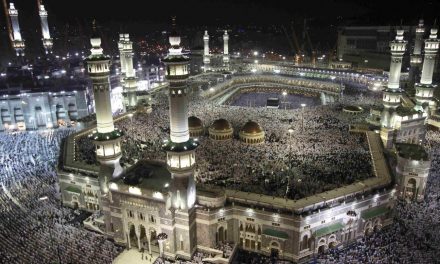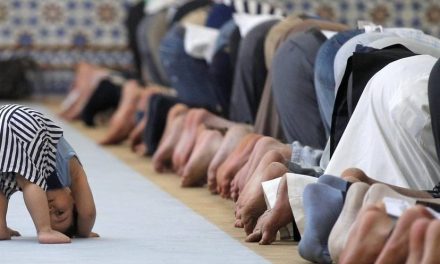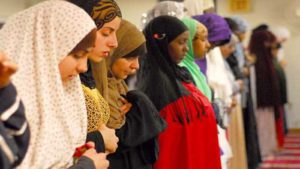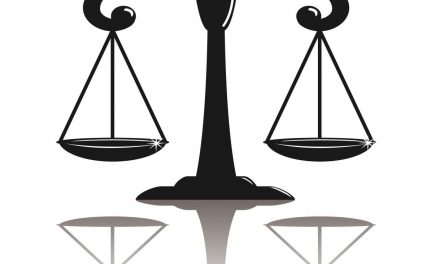Summary
This article surveys the different opinions regarding the maximum length of fasting for Muslims living in northern regions of the globe. My main concern is to ease the hardship that a sizeable population of Muslims may experience this year and in coming years as a result of fasting an exceptional number of hours. The point is to facilitate fasting during Ramadan and not to avoid fasting or to postpone it for another time or place.
Many scholars have tried to answer the question of how long a Muslim should fast in the summer of the northern regions of the world (above 48 degrees latitude) as this article explains. Some recent fatwas have held that Muslims should fast between the (estimated) Fajr and the actual sunset, even if the number of hours is 23 out of 24, or make up for the days in another season or region if people find it too hard to fast. This article critiques these fatwas and presents a number of prominent contemporary opinions that better fulfil the objectives/maqasid of Ramadan.
Introduction
This year, northern regions (i.e. above 48 degrees latitude) will experience excessively long fasts due to daylight calculations. In these parts of the world the period between the (estimated) Fajr time and the actual sunset ranges between 18 and 23 hours throughout the month of Ramadan. Several mainstream fatwas have concluded that Muslims ought to fast for that long, or otherwise not to fast this Ramadan and make up for the days later in a different region or different season.
Tens of millions of Muslims today live in regions north of 48 degrees latitude, from Canada, the UK, and Scandinavia to Russia, Ukraine, and Japan, as well as the northern parts of the US, France, Germany, Romania, Mongolia, China, and all of the regions above those areas. These populations have a serious concern: “What do we do? We simply cannot fast that long.”
This month, I received a number of similar questions and I met many Muslims from these countries, especially young Canadian men and women, who decided, unfortunately, not to fast this year, with no plans to make up for their fasting later.
In addition, local authorities in some of these countries have decided to intervene this Ramadan by not allowing students to fast during school hours citing health concerns. This is the case in the UK, where several schools reported cases from last year of fasting students falling ill, getting dehydrated, or fainting during the school day. They expressed a deep, and legitimate, concern about the health of a child under 18 who is going to fast for almost 20 hours every day in Ramadan this summer. Interestingly, Barclay School in East London, UK, issued a statement about their decision to disallow children from fasting this Ramadan by among other things referring to the “purposes of Islamic law” (orMaqasid al-Shari`ah) which “safeguards the health and education of a child.”
Given the gravity of these questions and outcomes, it is imperative to research the matter based on the scripts (nusus) and the objectives (maqasid) of Islamic jurisprudence with the aim of presenting the range of opinions that has been expressed in Islamic jurisprudence to date.
Sunset without darkness
During the summer months, in some northern regions, the sun sets but still remains too close to the horizon for these regions to experience total darkness. In particular, regions north of 48 degrees latitude do not experience any total darkness (or `Isha’), given that `Isha’ is defined by the sun being lower than the horizon by 18 degrees or more. Since there is no total darkness, then there is no physical start of the break of dawn or Fajr. This means that the “signs” (` alamat) for `Isha’ (which is complete darkness) and Fajr (which is the end of complete darkness) do not exist. Keep in mind that sunset and sunrise still happen (except north of the arctic circle).
In order to calculate `Isha’ and Fajr time, scholars follow different methods, all of which depend on calculations based on the timings for the actual sunset and actual sunrise. One popular method, for example, is to divide the period between sunset and sunrise into seven intervals; `Isha’ begins after the first interval and Fajr begins after the sixth. However, the time between the calculated Fajr and the actual sunset in the regions north of 48 degrees latitude will be somewhere between 18 to 23 hours of fasting every day.
Fatwa to fast until the actual sunset
Traditional schools of Islamic jurisprudence did not deal with this particular situation as far as I know. Some late scholars, such as Ibn Abedeen, Al-Suyuti, and Ibn Arafa dealt only with the case when there is no sunrise or sunset (Refer to: Radd Al-Muhtar, Al-Hawi Lil-Fatawi, and Hashiyat Al-Dusouki).
Contemporary scholars of Islamic jurisprudence held the opinion that as long as there is sunset and sunrise, then a Muslim in the northern parts of the world is expected to fast from the (estimated) dawn to the actual sunset, even if this period is close to 24 hours every day.
Scholars who endorse this opinion say that in cases of possible harm or hardship, Muslims should take the provision (rukhsa) and not fast this Ramadan. They should then make up for the days during some other times of the year with shorter days, or when they travel to other countries with more moderate timings (Refer to: High Council of Ulama, Saudi, Decision 61, 12/4/1398H. Also: Islamic Fiqh Council, Fifth Cycle, Decision No. 3, 1402-1982. Recently: European Council for Fatwa and Research – ECFR, Seminar on Fasting, Stockholm, 9/6/2015.)
There is a number of problems with this fatwa:
1. Most people would agree that it is very hard for an average healthy person to fast for 23 or even 20 hours every day for the entire month. Although I am not aware of any related scientific studies, I can attest from personal experiences as well as the experiences of others (old and young, men and women, athletic and non-athletic, healthy and not so healthy) that fasting that long is very hard and potentially harmful to an average healthy person.
This is contrary to what the Shari`ah intends, because Allah Almighty, in the context of mentioning fasting and its rules, said: {Allah intends for you ease and does not intend for you hardship} (Al-Baqarah 2:185).
Thus, ease and facilitation are amongst the Maqasid or higher objectives of Shari`ah in general and fasting in particular, as the Qur’an confirms. It is obvious that this fatwa makes it too hard for Muslims to carry out their duty of fasting the month of Ramadan or otherwise not to fast at all during Ramadan.
2. The duration of night accepted by this fatwa is not long enough for Muslims to perform the well-known obligations and recommendations of the Shari`ah during the nights of Ramadan. As little as fifty minutes in some regions, or even a few hours, is not long enough to pray Maghreb, `Isha’, and Taraweeh (night prayers) let alone to eat two meals that are highly recommended, i.e., iftar (breaking the fast) and suhur(night meal), as well as to allow marital relations.
Allah says:
{It is lawful for you to go in unto your wives during the night preceding the day’s fast: they are as a garment for you, and you are as a garment for them. God is aware of what you did secretly, and so He has turned unto you in His mercy and removed this hardship from you} (Al-Baqarah 2:187).
A hardship and a tough test that was removed by Allah in the Qur’an cannot be imposed by a humanijtihad/fatwa.
3. It is not the general spirit of the Shari`ah to allow the overwhelming majority of Muslims in a particular region to take a provisional license or rukhsah. Rules have to be doable and applicable to most people, and arukhsah is by definition an exceptional and individual “license” to be exercised on the basis of necessity.
4. The signs of the sunrise and sunset have a purpose of dividing the day in reasonable proportions and within a reasonable variation for the sake of prayers and fasting. When the Prophet (peace and blessings be upon him) told his companions about the days of al-Dajjal (Anti-Christ) at the end of time, he told them that some of his days will be as long as one month or one year. The companions asked: “Would we pray 5 prayers only when the day gets that long?” He replied: “No, estimate the timings [and pray as usual]” (Muslim 2937, also: Tirmidhi, Dawud, and Ibn Majah).
This is a clear evidence that the signs of the sun are only means to regulate the prayers, and that the 5 prayers are meant to be distributed over every 24 hours, even if the signs of the sun are missing. In other words, the objective of maintaining 5 prayers every day is more important than observing the signs of the sun per se.
Similarly, when the signs of the sun are causing the fasting period to be impossibly long leading to hardship, then we should “estimate the timings”, as the Prophet (peace and blessings be upon him) said. The objective of maintaining a reasonable amount of ease during fasting (yusr, mentioned in 2:185) is more important than observing the signs of the sun per se when they are not within a reasonable range.
5. There is an underlying assumption in the above fatwa that Muslims in these regions are living there temporarily, hence the recommendation to fast elsewhere. The majority of Muslims, however, in these regions are permanent residents.So, finding a permanent solution to this problem is imperative for their welfare and for Islam to take root in northern societies.
6. It is against the spirit and objective of unity and solidarity with fellow believers for a significant portion of the Muslim Ummah not to fast in Ramadan with the rest of the Muslim Ummah, just because they live in the northern parts of earth. Also, it is going to be hard for Muslims in these regions to make up for the 29 or 30 days of Ramadan in other months. There is a much higher motivation to fast while Muslims in the community and around the world are fasting.
7. Finally, fasting does impose some physical hardship on the believer and does require patience and perseverance. However, it is not an objective for fasting to be incapacitating to the believer to the extent of not performing necessary religious, family, social, or professional duties. This is definitely the situation of people who will fast for up to 23 hours for the whole month.
Alternative Fatwas
Throughout the twentieth century, a number of contemporary scholars answered the same question by fatwas that allowed Muslims in the far north to follow a different calendar, even with the existence of sunrise and sunset. I found three main approaches in the literature of contemporary Islamic jurisprudence.
1. Sheikh Mohammad Abdu (1849-1905), as quoted by his student Sheikh Rashid Reda, has the following reasoning (Al-Manar 2/163):
“Allah Almighty ordered us to pray, and the Prophet (peace and blessings be upon him) showed us the timings of the prayers in the context of the moderate part of earth, which is most of the earth in any case. Now, when Islam reaches the people of regions where days and nights are too different from the moderate regions, they can estimate their prayer times by reasoning and analogy with the Prophetic timings. Fasting is dealt with similarly … Scholars of the past discussed the issue of “estimation” of the timings when Muslims started to live in countries where the day was too short and the night was too long, or the other way around. However, they differed over the reference region for this estimation. Some chose to refer to the moderate regions where the legislation itself was revealed, such as Makkah and Madinah, and some chose to refer to the closest of the moderate regions to their own extreme regions. Both opinions are valid, since there is no script that dealt with this issue in any case”.
Several Egyptian Muftis who came after Sheikh Mohammad Abdu followed his opinion (Egyptian Dar Al-Ifta, Fatwas: 214/1981, 160/1984, 171/1993, 579/1995, 438/1998, and 2806/2010).
2. Sheikh Mustafa Alzarqa (1904-1999), also a prominent twentieth century scholar, was a member of the Fiqh Council in Makkah when it issued the fatwa mentioned above. He, however, objected to the fatwa, and commented:
“The Hadith that the Fatwa quoted is assumed to be addressing the people of the Arab Peninsula. There is no evidence that the Hadith does not consider the large difference in timings between the Arab Peninsula and regions that are much further to the north or to the south. These regions have to be judged based on the purposes/Maqasid of the Shari`ah, because the Hadith did not mention these regions. To generalise the regular calculations just because people could differentiate between a day and a night, without considering their proportional length, is at odds with the Maqasid and the general rule of avoiding hardship. It is not reasonable to pray all of the day or the night prayers in half an hour, and it is not reasonable to fast for one hour and then break your fast for 23 hours. My opinion (that was not mentioned in the decision, even in a footnote) is one of two solutions: Either to go by the timings of the region where Islam was born and that was the geographical context of the quoted Hadiths, i.e. Hijaz, or to go by the timings of the furthest northern and southern regions under the Muslim rule. Otherwise, there is immense hardship. It is obvious that the Quran asked us to elevate hardship” (Al-`aql wal-Fiqh fi Fahm al-Hadith, p.124, 1996).
3. Dr. Mohammad Hamidullah (1908-2002) took the latitude of 45º North or South as the limits of a moderate region and hence decided to limit the duration of fasting to a minimum of 8 hours and a maximum of 16 hours. He wrote:
“In regions far away from the equator, these times are too inconvenient to be practical. So instead of the movements of the sun, one calculates and follows the movements of the clock: and, as has been explained, the times obtained at the 45º North or South Latitude are valid in all the regions between 45º N or S and the pole. So, Bordeaux-Bucharest in Europe, Portland-Halifax in North America constitute the limit of the normal zone; all countries North of these places have to follow the time table of these places. Mutatis mutandis the same applies to countries in the extreme south of Argentina and Chile in South America” (Introduction to Islam, Centre Culturel Islamique Paris series, Ch. 15).
Sheikh Mohammad Abdu and Sheikh Mustafa Alzarqa both gave an option to refer to the timing of Makkah, or the maximum timing of Makkah, which happens in the Summer in any case. Sheikh Abdu also allowed the calculation based on the closest regions that have moderate timings, whereas Sheikh Alzarqa restricted this land to be under “Muslim rule”, which is similar as well.
Dr. Hamidullah’s calculation is similar to the above views, because he calculated that these moderate regions are the regions that fall between 45 degrees north and south, hence he estimated the maximum period for fasting to be two thirds of the day (16 hours).
My opinion on this particular calculation differs slightly from that of Dr. Hamidullah’s. I believe that the limit of the moderate region in the North should be 48 degrees rather than 45 degrees. Precisely, 48.5 degrees is the start of the twilight lasting from one day to the next, which means that the sun does not go lower than 18 degrees below the horizon and thus complete darkness (`Isha’) never occurs (based on: The United States Naval Observatory, USNO Data Services aa.usno.navy.mil/data). I used the widely accepted 18 degree below the horizon and based on my calculations at 48 degrees latitude, the maximum number of hours for fasting would be about 18 hours.
Conclusion
To summarise, the alternative opinions that this article has presented to facilitate summer fasting for Muslims who live north of 48 degrees irrespective of the sunset are:
(1) to fast according to the calendar of Makkah or Medina;
(2) to fast according to the calendar of the closest region with moderate timings;
(3) to fast starting from Fajr for a maximum of sixteen hours based on 45 degrees of latitude;
(4) to fast from Fajr to a maximum of 18 hours based on 48 degrees of latitude.
Given the above diversity of ijtihad or juridical reasoning regarding the length of the summer fast in the northern regions of the world, it is my view that every Muslim must consider these opinions and follow that which will enable her or him to fulfil this fundamental pillar of our faith. Fasting during Ramadan is an obligation on every Muslim wherever they live on earth. I have striven to present several equally valid opinions in this article that in my view more accurately fulfil the objectives of this blessed month.






